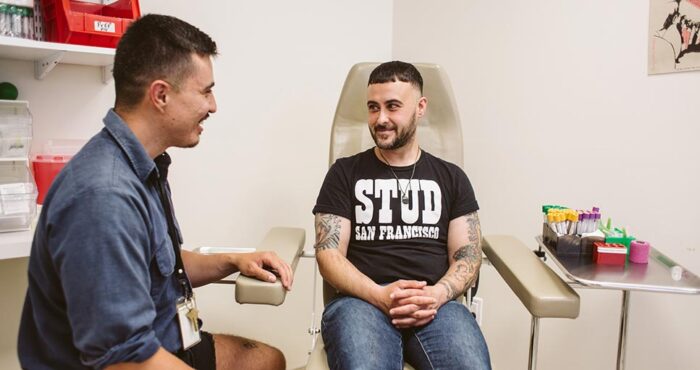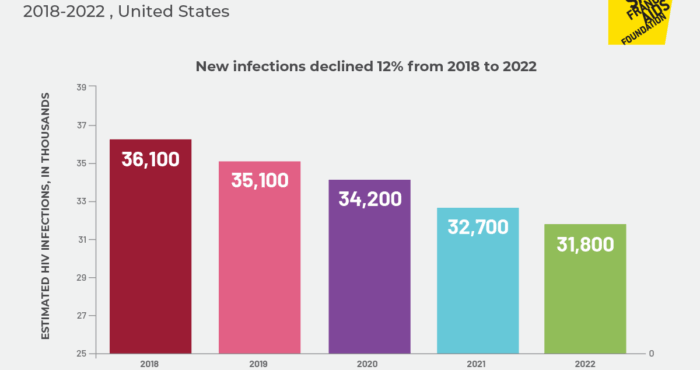PrEP injectable found to be “highly effective” for HIV prevention in HPTN study
Early study results from HPTN 083, assessing the safety and efficacy of the long-acting injectable drug cabotegravir for PrEP, were released on May 18. The HIV prevention medication is delivered as an injection once every eight weeks. Researchers said these early results demonstrate that cabotegravir LA is “highly effective” for the prevention of HIV in cis men and trans women.
There were approximately three times as many infections among people taking daily oral pills of tenofovir/emtricitabine (Truvada) than among people receiving the PrEP injections, leading the Data and Safety Monitoring Board (DSMB) to recommend that the blinded, randomized portion of the study be stopped early. The results come nearly two years earlier than originally expected, said Raphael Landovitz, MD, the HPTN 083 protocol chair.
“One of the biggest challenges with PrEP at this time is adherence, or remembering to take pills,” said Janessa Broussard, NP. “There is a subset of people that oral PrEP does not work for–they can’t swallow the pill, or their lifestyle or routines don’t allow for it. So this could be another option for these people, or for people who are taking pills but prefer to receive an injection.”
The HPTN 083 study enrolled 4,570 cis men and trans women at sites across Argentina, Brazil, Peru, Thailand, the U.S. and Vietnam. 12% were trans women, and two-thirds of participants were under 30 years old. Participants were randomly assigned to receive either oral TDF/FTC (Truvada) pills or the long-acting cabotegravir injections (each participant received one active drug and one placebo, so all participants received an injection and took pills during the study). The 600 mg cabotegravir injections were administered once every 2 months (every 8 weeks).
A total of 50 HIV infections occurred in the study, with 38 infections among people taking daily oral pills and 12 infections among people receiving the cabotegravir injections. These results demonstrate that the cabotegravir injections were statistically non-inferior to the daily oral regimen.
Although there were more HIV infections among people taking oral TDF/FTC, Broussard said that this should not be a cause for concern for people currently taking Truvada for PrEP.
“Some studies and real-world data have shown much higher effectiveness, particularly when adherence is taken into consideration,” she said. “Truvada has been shown to reduce the risk of infection by up to 99%, with higher levels of protection when individuals take PrEP seven-days-a-week. Our real-world experience makes us feel very secure that oral regimens are very effective, and this new research shows that cabotegravir is also very effective.”
With the DSMB recommending and National Institute of Allergy and Infectious Diseases approving that the blinded, randomized portion of the study be ended early, all participants in the study will be informed which study medication they received and will be offered cabotegravir injections if they were assigned to receive TDF/FTC.
Broussard emphasized that additional PrEP medication options that become available must aim to expand PrEP access to communities that are most at risk and impacted by HIV.
“It’s important that people who might not have health insurance, who may be unhoused, who inject drugs, and who may face other disparities related to health care access be considered and prioritized for access to all PrEP options,” she said.










